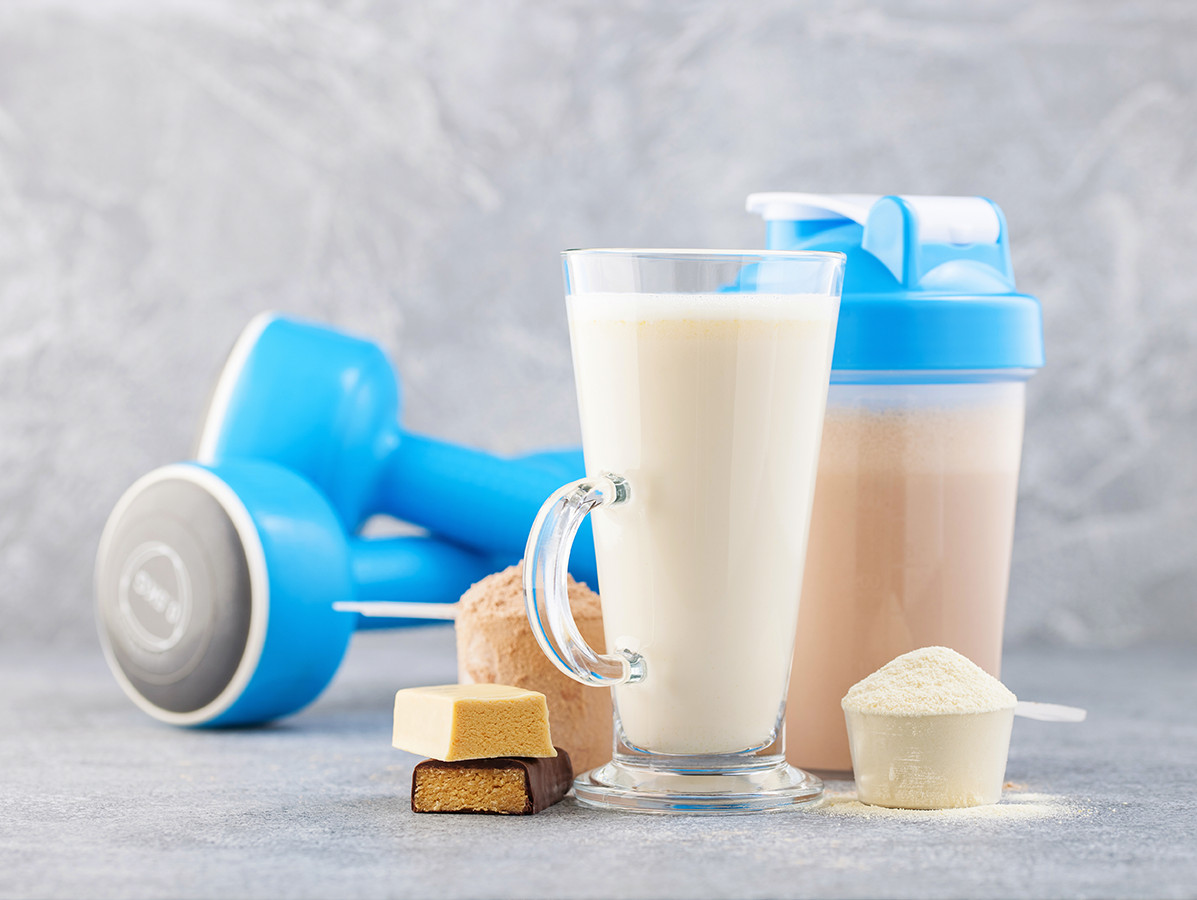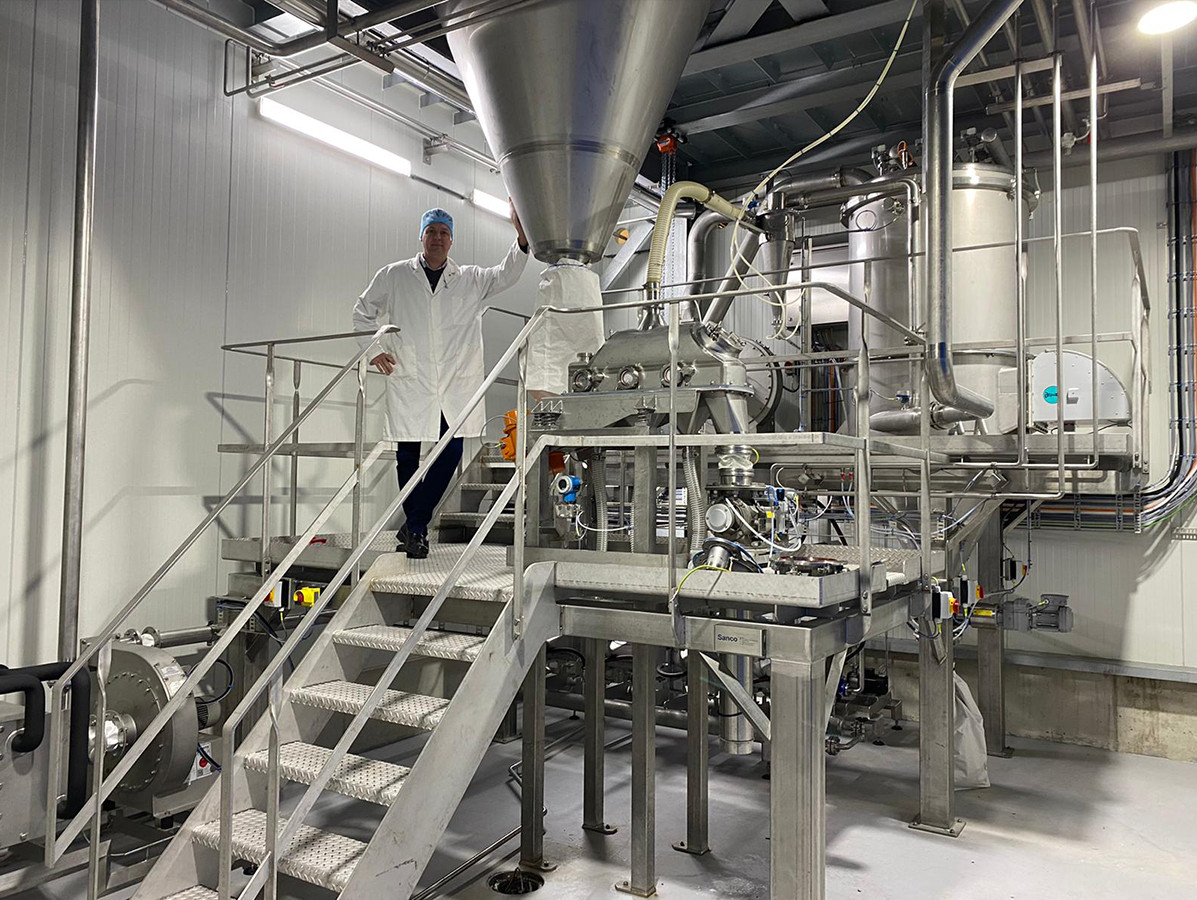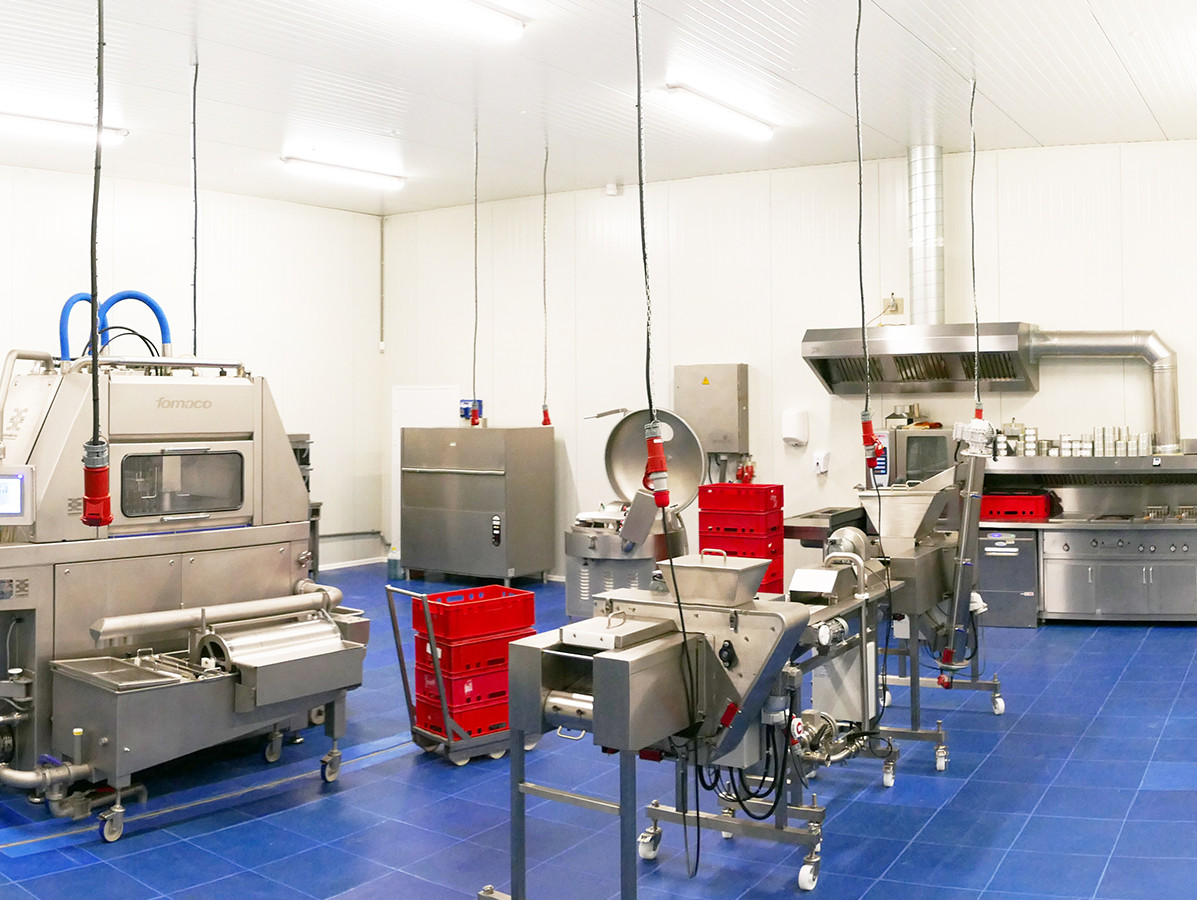
An oven croquette that splits when heated, a product that releases too much moisture during baking, reducing the salt, sugar and/or fat content, wanting better adhesion between layers in the product. The questions from the food industry are diverse. So are the solutions. Product improvement never stops.
Helping producers in their quest to improve the structure, taste, quality and shelf life of food products, and reduce costs; these are the goals pursued by René Manders - commercial manager industry and retail at FI&S, Laurens Maathuis - managing director at DCP Ingredients and Albert Goedemoed - sales & product manager at Life Supplies. For this article, they joined forces at the Teams table to talk about the trends, developments and challenges that they observed in the world of ingredients.
DCP Ingredients is an internationally oriented producer of functional beef collagen for the food industry: low in fat, halal certified and free from additives. Improving texture, increasing juiciness, reducing salt, lowering the meat/fat content; there are plenty of opportunities to use collagen.
FI&S provides the food processing industry with food technology functionality by developing, producing and selling tailor-made blends; for improving structure, texture, binding, coating, yield and improving shelf life, taste and colour.
Life Supplies is a supplier of all conceivable food additives, from standard to very specific, traceable to source, and always of a guaranteed, constant high quality and safety.

"Scarcity," says Albert Goedemoed (Life Supplies). "Traditionally, we are used to getting raw materials such as corn and soya, rubber and oil, from far away. This is becoming, or is already, an increasing problem. For our customers, we are pro-active in this respect. Is the market collapsing? Is there an alternative available so that they can continue production? The corona pandemic is currently causing major shortages on the world market. China and India locked up, sea transport collapsed, serious problems arose in the supply chain."
René Manders (FI&S) recognises this: "From the request for raw materials to the delivery; everything is difficult now. Even sea containers are in short supply; they suddenly cost ten times as much. In the past, FI&S was very much focused on export to America, Asia, and Africa. In recent years, we have focused more on the Dutch market. We are very happy about that now."
Albert: "The increasing climate issue also plays a part in scarcity. Like now; there is a huge shortage of products that can be derived from oil. Think of monopropylene glycol, chemical acetic acid and plastic, for your packaging. In Texas, for example, a number of oil producers came to a standstill because of the extreme drop in temperature in February from plus 30 to minus 30 degrees Celsius. Everything was frozen to death. Because those factories are now at a standstill, no by-products are produced that can be processed again into, for example, acetic acid, poly-ethylene and poly-propylene. This causes great shortages."
"Another example is inulin. This is a 100% soluble fibre that is often used in sports nutrition, breakfast shakes, meal bars and is very popular for use in meat substitutes. Inulin is an extract from chicory root. Its harvest depends on a number of factors. Due to climatic conditions, this year's harvest was 30% lower than last year, while the demand for inulin has actually increased."
DCP-Ingredients sources its raw materials from Europe. "Fortunately. For us, the supply continued despite corona," says Laurens Maathuis (DCP Ingredients), "The demand for our beef collagen is still increasing. The corona epidemic has woken us up. We see even more clearly how essential it is to have a broad orientation in order not to become too vulnerable."
Albert sees a trend in this: "People are thinking more about spreading risk than they were ten or twenty years ago. For example, by not buying all products from one continent. We may have to pay a bit more, but continuity is more important than price.
There is also a growing awareness that the climate has a considerable influence on the capacity to grow certain raw materials, such as corn, soya and grain. We see shortages developing here."

Laurens: "With collagen from beef, you can very well make a hybrid product that consists partly of meat and partly uses the technological properties of beef collagen. The development of hybrid products has been increasing for years, without us realising it. Many meat products, such as hamburgers and schnitzels, are in fact already hybrid because they contain, for example, potato starch, breadcrumbs or soya proteins. In the Netherlands, the demand for meat alternatives is growing, partly because of climate considerations; in other parts of the world, such as Africa and Asia, other issues play a major role. There, the limited availability of meat and a low disposable income are much more important. With a hybrid product, a nutritious and affordable meat product becomes accessible to a larger group of people."
Albert: "With the increased demand for many plant-based products, the demand for functional ingredients and additives is also growing. These are necessary to make everything stick together, to obtain juiciness or a creamy mouth feel. We are working hard on this, with products from fermentation and, for example, acetic acid and sodium sulphate from recovered wood pulp. Plant-based products are labelled as being better for the environment than meat, but I think this discussion should be held in a more honest way. After all, vegetable proteins are often intensively processed, and that also results in a high energy burden. Where do you get the ingredients, such as soya, exactly? How are the raw materials grown and by whom, what does it cost in terms of water, land, pesticides? In my opinion, the facts do not quite fit in with the sustainability story. We are Ecovadis certified; a sustainability certification. We see a trend among our customers to pursue this."
Laurens: "I agree. You have to tell the whole story. Be honest. That it went wrong at the time with the introduction of extra lean minced meat due to the addition of vegetable protein was mainly due to communication. For innovation to succeed, a cultural shift is needed. Consumers must be able to make choices based on honest information. At present, it is often unclear what the exact differences are between a meat and a hybrid product, what influence the composition has on costs and environmental impact, and on matters such as preparation time, taste and succulence. That story needs to be told better. There must be transparency."
Albert responds: "It is not only the story behind it that has to be transparent. It is crucial that all the ingredients are also 100 per cent what you say they are. We therefore always send the original certificates of analysis with the shipments to the customer, and audit and check all our partners according to European standards, even if they are based in Asia or Africa."
This is no different at FI&S, agrees René: "All ingredients that come to us are tested by both our own lab and by an external accredited laboratory. Everything must meet our requirements. And they are pretty strict."
Laurens emphasises that they, too, have an overview of the chain from front to back. "Recognition is a requirement for marketing your product commercially. Among other things, we are FSSC 22000 certified."

There is still plenty to do, but innovation is currently lagging behind at many companies, says René. "To give good advice, we need to know exactly what the customer's objective is. Sometimes they just want a small improvement in efficiency. In that case, we analyse the composition of the existing ingredient mix and production line and the goal can often be achieved by adjusting the line slightly. Adding a new ingredient, just like the ripple of a stone in the water, always affects the entire product. We therefore never say to a customer 'Here is a mix, try it'. Measurement is knowledge. New products are first subjected to challenge tests and are tested for taste, colour and shelf life. However, because of corona, the labs are only half occupied and the (sensory) panels are also at home. A lot of innovation is on hold."
Albert agrees: "I had been working on a new breakfast shake for a well-known dairy producer in the Netherlands for a year. Then Corona came along and the whole project was put on hold. Now they are slowly starting up again, but all the tests have to be repeated. So you just have to set aside another year for it. That's a tough break."
René indicates that circularity is a driver for change and renewal. "For example, we have entered into a partnership with Peel Pioneers, who collect orange peels from squeezed oranges at supermarkets. They crush the oil and a fibre is released. We use the fibre in our mixes to bind them into products: the project is called 'from peel to shelf'. We also work together with a manufacturer of chicory. When chicory is cut from the ground, a stalk remains in the ground. That was previously ground up and thrown away. We say: a waste! You can process and use it; for flavour, binding or extra fibre. We have recently started to extract a fibrous substance from these bitter stumps that serves as an additive in various mixes. There are opportunities here."
"Salt reduction remains a hot topic," says Albert, "as do sugar and fat reduction. What people want is the perception of sweetness, salt and fat, but not the adverse, unhealthy consequences. That's why we zoom in on possible substitutes, such as Stevia for sugar. However, if you use Stevia as a sweetener, you have to disguise the bitterness it also has with another ingredient. We are now investigating what exactly is in the plant that makes it so sweet, in order to extract only the particle from the Stevia that is related to sugar.
"We can turn our beef collagen, with a slightly different treatment, into collagen peptides," says Laurens. "With that ingredient we are now targeting the market for sports bars and fitness recovery drinks, among others. We will soon be opening a whole new factory for this. Lifestyle is the future. The corona pandemic has woken people up. We are more aware of the importance of a healthy lifestyle in which healthier food and more exercise play an important role."
Enough ingredients for renewal. The industry is far from fully developed.
Photo lifestyle:©Africa studio/Shutterstock.com
Photo world: ©Natalyabond/Shutterstock.com
Photo factory: ©Matej Kastelic/Shutterstock.com
Source: Vakblad Voedingsindustrie 2021